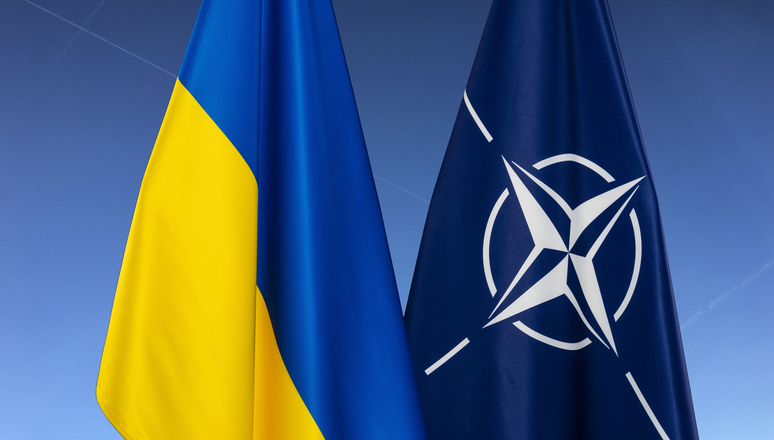NATO is helping Ukraine defend itself against Russia’s war of aggression by coordinating the delivery of aid from Allies and partners to Ukraine. Together, NATO Allies account for 99% of all military aid to Ukraine.
Through NATO’s Comprehensive Assistance Package (CAP) and related funds, Allies have pledged around EUR 800 million (approximately USD 870 million) to meet Ukraine’s critical needs for non-lethal aid, including cold-weather clothing, body armour, fuel, transport vehicles, secure communications, combat rations, demining equipment and medical supplies. In addition, under the CAP, Allies have committed to supporting Ukraine further with a multi-year assistance programme, which will help Ukraine transition from Soviet-era to NATO standards, training and doctrines; help rebuild Ukraine’s security and defence sector; and continue to cover critical needs. NATO has also upgraded political ties by establishing the NATO-Ukraine Council, a forum for crisis consultation and decision-making where all NATO members and Ukraine sit as equals.
NATO member countries are sending weapons, ammunition and many types of light and heavy military equipment to Ukraine, including anti-tank and air defence systems, howitzers, drones, tanks and fighter jets. NATO’s Article 5 security guarantee and its iron-clad promise of collective defence provides Allies with the confidence that they can send weapons to Ukraine without diminishing their own security. Furthermore, Allied forces are training Ukrainian troops to use this equipment. All of this is making a difference on the battlefield every day, helping Ukraine to uphold its right of self-defence, which is enshrined in the United Nations Charter. To coordinate all of these equipment donations and the training of Ukrainian forces, Allies have agreed to establish NATO Security Assistance and Training for Ukraine (NSATU), which will be based in Wiesbaden, Germany and have logistics hubs in the east of the Alliance, staffed by nearly 700 personnel from Allied and partner countries.
To ensure that all of this support continues, Allies have made a Pledge of Long-Term Security Assistance for Ukraine. Under this Pledge, Allies have agreed to provide a minimum baseline funding of EUR 40 billion within the next year, and to provide sustainable levels of security assistance for Ukraine to prevail.
Many Allies are also providing humanitarian aid to civilians and hosting millions of Ukrainian refugees. Allies are working with relevant stakeholders in the international community to hold accountable all those responsible for war crimes, including conflict-related sexual violence. Allies have also worked closely to support international efforts to enable exports of Ukrainian grain and to alleviate the global food crisis.
In the longer term, the Alliance is committed to assisting Ukraine and supporting efforts on its path of post-war reconstruction and reforms. All of these initiatives constitute a bridge to Ukraine’s membership in NATO.
Learn more: Washington Summit Declaration, 10 July 2024 – including Pledge of Long-Term Security Assistance for Ukraine
Learn more: Vilnius Summit Communiqué, 11 July 2023
Learn more: Madrid Summit Declaration, 29 June 2022
Learn more: Statement by NATO Heads of State and Government, 24 March 2022
